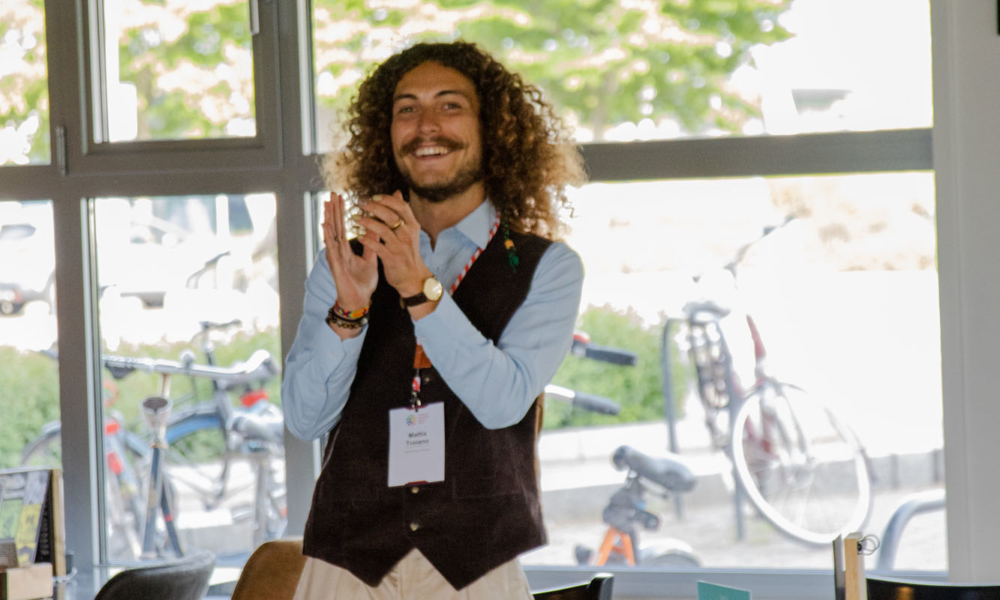Researcher Spotlight: Mattia Troiano
Associated Sprints
Recent News
- From beans to minerals: the new projects getting science into policy
- Hunger on our doorstep
- Place-based working to meet national well-being and sustainability goals

Mattia Troiano is a researcher on the Sprint investigating, “How can the UK implement the Global Biodiversity Framework’s finance goals?”
During my studies in Politics, Philosophy, and Economics (PPE) at Goldsmiths, University of London, I co-founded the multi-awarded start-up PROSPERAH that helps small to medium size enterprises (SMEs) and not-for-profit organisations transitioning towards social-ecological sustainability. After resigning from my operational role in PROSPERAH, I embarked on a policy advocacy journey and EU project delivery for innovation in policymaking by fostering collaborative youth-led deliberative spaces for the future of the gig economy in the EU, whilst being a committed advocate of mentoring as a policy instrument in EU social and economic policy.
I have recently completed his MPhil project in Environmental Change & Management at the School of Geography and the Environment for which I worked across participatory social science and art-based methods in Oxford to explore multi-dimensional equity of urban greenspace from a community perspective. Since my undergraduate studies, my research focus aimed to broaden the analysis of mainstream conservation initiatives from a socio-ecological perspective by looking at the feasibility of a more ecologically informed and socio-economically inclusive and equitable environmental governance and this Sprint represented a great opportunity to continue to grow in this direction.
In my current Agile-funded role across the Environmental Change Institute and the department of Biology, I am exploring the social dimension of Biodiversity Net Gain – biodiversity offsetting market – in Oxfordshire, with a particular focus on inclusivity of the market and implications for equitable landscape scale nature recovery. Working on this Sprint has been so far an incredibly fast and interdisciplinary learning curve. From navigating language, epistemic and methodological differences across fields to working with different teams have all enabled me to refine my own research communication and dissemination style whilst also connecting important dots across disciplines and realise that some of the tensions are in fact just at the surface level and synergy is reachable with good mediation and mutual willingness to learn. The biggest challenge has been so far doing participatory research for which long-term trust relationships with members of the public are needed in a very short time whilst avoiding extractive research practices. The lack of clear framework to navigate conflicts and tensions emerging through the process of knowledge co-production across fields and teams has been indeed also challenging yet a great space for a social scientist like me to navigate.
This has also been an amazing opportunity to pilot some of the methods and preliminary ideas and network formation strategies for my DPhil due to start next October thanks to a ESRC collaborative studentship with our Sprint local policy partner, the Oxfordshire Local Nature Partnership. I am excited to see how many follow-up research questions unaddressed from my work on this Sprint will become seeds for my next research chapter, hopefully interdisciplinary by design.



